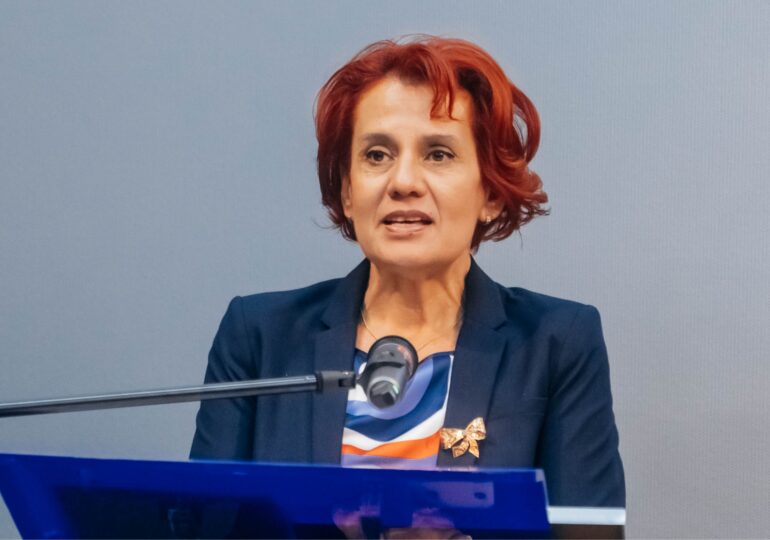The best thing that was supposed to happen at the end of last year, if the electoral cycle had ended smoothly, would have been the new common beginning of the president, Parliament, and the Government.
Meaning a return to the logic on which the Constitution was conceived, a logic annulled by the amendment of the Constitution in 2003, more precisely by extending the president’s term to five years.
This reorganization would have meant that a new president proposes a new prime minister to a new parliament, a prime minister supported by a freshly confirmed electoral parliamentary majority.
Having missed that moment, the president to be elected on May 18 will start his term, just like all others starting from 2009, with an already elected Parliament, an already constituted majority, and a Government already installed, with the prime minister at the helm, of course.
The president has no direct leverage to dismiss the prime minister. Sure, he can ask him to resign, publicly and privately, attend government meetings that have on the agenda issues of national interest regarding foreign policy, defense of the country, maintenance of public order, without being part of the decisions, though. He can delay appointment or dismissal decrees. But no more than that.
So, the expectation that a new president will automatically bring a new government or even a new majority is unrealistic if the new president does not have the leverage of a strong parliamentary party to act on the majority and the Government.
And yet, the expectation exists and is even a motivating factor for voting.
Specifically, how are we doing?
The new president will find a prime minister, Marcel Ciolacu, and a functioning government. Can he dismiss the prime minister? No!
Klaus Iohannis needed a year, in his first term, when he sincerely wanted to get rid of Victor Ponta, to achieve his goal. And he wouldn't have succeeded without Dragnea pushing Ponta down the stairs after the Colectiv tragedy.
But after a technocrat year, PSD returned even stronger, and it took almost 3 years for the president to have his own prime minister.
The current PSD prime minister would leave office, either by resignation or by a vote of no confidence. Marcel Ciolacu will not resign because that would mean his political end. The next day, he would also lose the party, which keeps him at the helm only because that way they also control the Government.
Theoretically, he could be dismissed through a vote of no confidence, but only starting from September because the motion of this session has been used, there are no unused signatures for a second one.
Could it pass? Only if PNL were to ally with extremists to bring down the Government they are part of. Very unlikely that they would do that. But let's say they do, and the Government falls. What would follow?
Parliament was elected on December 1 and has the configuration that Romanians voted for. In this configuration, it should be very clear to us that a parliamentary majority without PSD is not possible. And a majority is needed even to install a minority government. Those hoping for a PNL - USR - UDMR government are contradicted by simple arithmetic.
As the pivotal party, it is in the political logic for PSD to claim the position of prime minister. It is also a pragmatic matter.
As an extremely experienced politician once told me, a prime minister from a minor party in a coalition cries in the government meeting. Sure, he is the formal leader, but the real decision lies where the political engine of the majority is.
Let's say that, in a broader majority, if USR were to join the government, together with PNL, they would together have equal weight with PSD. But even so, with PSD being the indispensable one, they would have to voluntarily give up the prime minister position to their partners. Would PSD do such a thing? Never before has PSD relinquished power, especially when elections are still far away.
So, the prime minister would still be from PSD.
Who? PSD does not yet have a well-established replacement for Marcel Ciolacu. So, it would not be excluded for him to remain, because the party's main objective is governance.
Yes, the president can force a designation under the pressure of Parliament dissolution and snap elections. But that takes time. Two governments must fall within 60 days, followed by consultations with the Presidents of the Chambers. It's complicated, involves a lot of instability with very high economic costs.
And during this period of turmoil, a PSD + extremists majority could form, ultimately changing the Senate president and suspending the president, allowing the interim to appoint the prime minister.
Sure, with huge external costs for PSD, but not greater, from their perspective, than losing control of the government.
There is truly only one scenario in which the election of the president could quickly lead to a change of government. Victor Ponta. He can only win with massive PSD votes, immediately taking control of the party essential to any coalition and imposing his own PSD prime minister.
The majority is a terribly risky discussion, I would say. I don't think Mr. Ponta would hesitate to push PSD into a combination with AUR, which in turn is unlikely not to change its president in the hypothesis of this election outcome.

